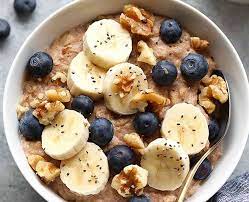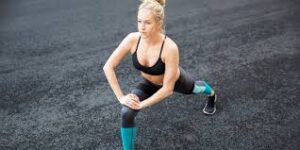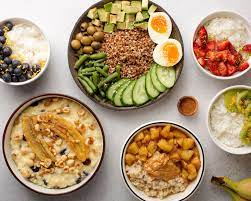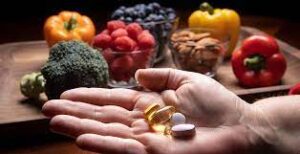Powering Your Performance: Top Fueling Tactics for Achieving Peak Fitness
Achieving peak fitness is not just about regular exercise and consistent training. Nutrition plays a crucial role in powering your performance and getting the most out of your workouts. Proper fueling can make the difference between an average workout and a great one. In this blog post, we will discuss the top fueling strategies that can help you achieve peak fitness and perform at your best. From pre-workout meals to post-workout recovery snacks, we’ve got you covered. Let’s dive in!
Pre-Workout Meal

Fueling up before your workout is essential to ensure that you’re able to perform at your best. Your pre-workout meal should provide you with enough energy to sustain you through your entire fitness session.
To optimize your fitness performance, aim to eat a pre-workout meal that’s high in complex carbohydrates, moderate in protein, and low in fat. Complex carbs are slowly digested by the body, providing you with a steady source of energy throughout your workout. Meanwhile, protein is crucial for muscle recovery and growth, which is essential for maintaining overall fitness.
Some examples of pre-workout meals that fit these criteria include:
- Oatmeal with fresh fruit and nuts
- Brown rice and chicken stir-fry
- Whole wheat toast with avocado and boiled eggs
- Quinoa and vegetable salad
Remember, timing is key when it comes to your pre-workout meal. You should aim to eat at least 1-2 hours before your workout, giving your body time to digest and absorb the nutrients.
By fueling up with a nutritious pre-workout meal, you’ll be able to power through your fitness routine with ease and achieve your peak performance.
During Your Workout

While the pre-workout meal is important for providing your body with the energy it needs to power through your fitness routine, fueling during your workout is equally crucial for sustaining your performance. During intense exercise, your body uses glycogen stores as a primary source of energy. Therefore, consuming easily digestible carbohydrates can help maintain optimal blood glucose levels and improve endurance.
One common way to fuel during workouts is to consume sports drinks or electrolyte-enhanced beverages that contain a mix of carbohydrates, sodium, and potassium. These drinks can replenish fluids lost through sweat, maintain blood sugar levels, and reduce the risk of dehydration and muscle cramps.
Another way to fuel during workouts is to consume easily digestible carbohydrate sources, such as gels, energy chews, or fruit. These quick sources of fuel can provide your body with the necessary carbohydrates to sustain energy levels during high-intensity workouts.
If you’re working out for an extended period, it’s also essential to consider your protein needs. Consuming protein during prolonged exercise can help reduce muscle damage and promote recovery. Protein powders and bars are convenient options for fueling with protein during exercise.
It’s important to remember that individual fueling needs may vary based on factors such as the type of exercise, intensity, and duration. Experimenting with different fueling strategies during workouts can help determine what works best for your body. Ultimately, proper fueling during exercise can help improve performance, reduce fatigue, and promote recovery.
Post-Workout Recovery Meal

After completing a rigorous workout, your body requires proper nutrition to repair and replenish the muscles that have been depleted during exercise. To maximize the benefits of your workout, it’s essential to consume a post-workout recovery meal within 30 minutes to an hour of exercising.
The ideal post-workout meal should contain both carbohydrates and protein to help restore glycogen levels in the muscles and repair any muscle tissue damage. Aim for a meal with a ratio of 3:1 or 4:1 of carbohydrates to protein.
Here are some examples of post-workout recovery meals:

- Smoothie: Blend a banana, frozen berries, almond milk, and protein powder for a refreshing and nutrient-packed smoothie.
- Grilled Chicken Salad: Top a bed of leafy greens with grilled chicken, quinoa, avocado, and cherry tomatoes for a delicious and filling salad.
- Whole Wheat Toast with Peanut Butter: Toast a slice of whole wheat bread and spread peanut butter on top. Pair with a side of fruit for a quick and easy post-workout snack.
It’s also crucial to rehydrate after exercising. Water is typically the best option, but for longer workouts or intense exercise, consider adding a sports drink that contains electrolytes to replenish those lost during sweat.
In addition to consuming a well-balanced meal, you can also consider taking a recovery supplement to help enhance your recovery process. Protein powders, amino acid supplements, and tart cherry juice are all popular choices for recovery supplementation.
Overall, consuming a nutritious post-workout recovery meal and rehydrating is key to optimizing your fitness performance and reaching your fitness goals. Be sure to prioritize this meal as a crucial part of your exercise routine.
Supplements

Supplements are a popular addition to many fitness enthusiasts’ routines, but they can be confusing. Here’s a breakdown of some common supplements and their benefits:
- Protein Powder: Protein is essential for muscle recovery and growth, and protein powder is an easy way to ensure you’re getting enough. Whey protein is a popular choice for athletes due to its quick absorption rate.
- BCAAs: Branched-chain amino acids (BCAAs) are three essential amino acids (leucine, isoleucine, and valine) that can aid in muscle recovery and reduce muscle soreness.
- Creatine: Creatine can increase muscle strength and power during high-intensity exercises. It’s also been shown to improve endurance performance and reduce muscle damage.
- Beta-Alanine: Beta-alanine can increase muscle endurance by delaying fatigue. It’s commonly found in pre-workout supplements.
- Caffeine: Caffeine is a stimulant that can improve alertness and concentration during exercise. It’s commonly found in pre-workout supplements and can improve performance during high-intensity exercises.
Remember, supplements are not a replacement for a healthy diet and proper hydration. Before taking any supplements, consult with a healthcare professional and research their benefits and potential side effects.
